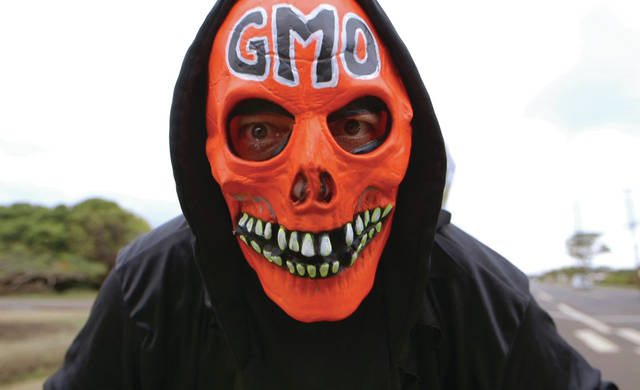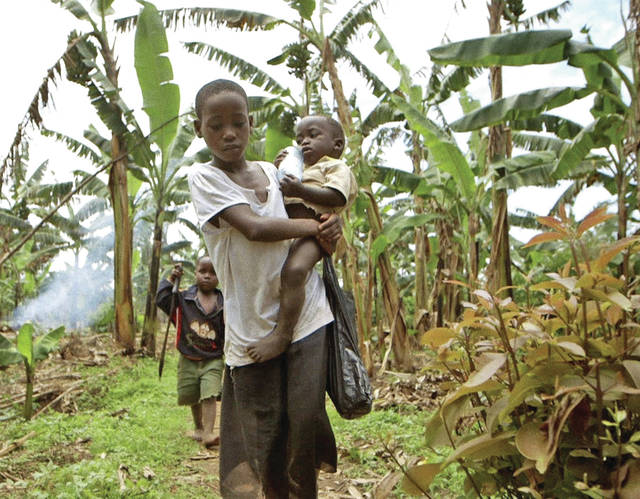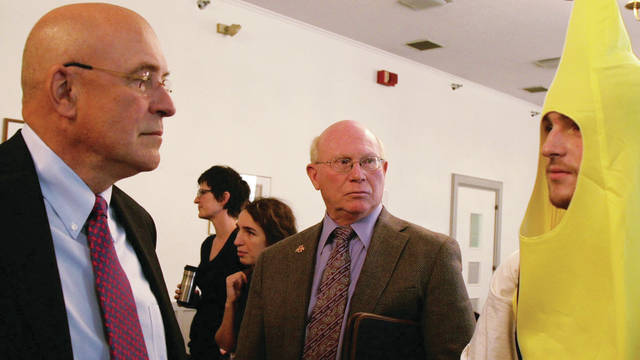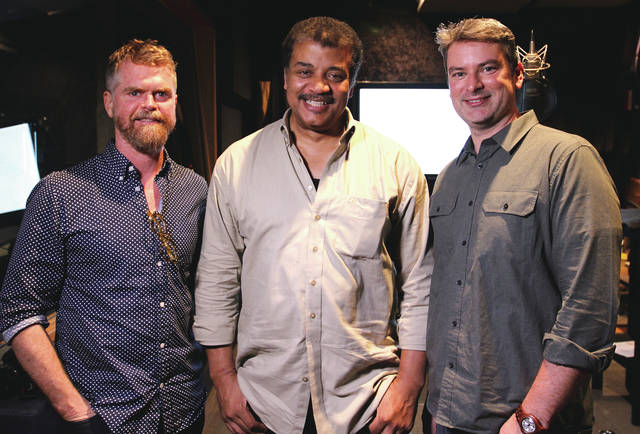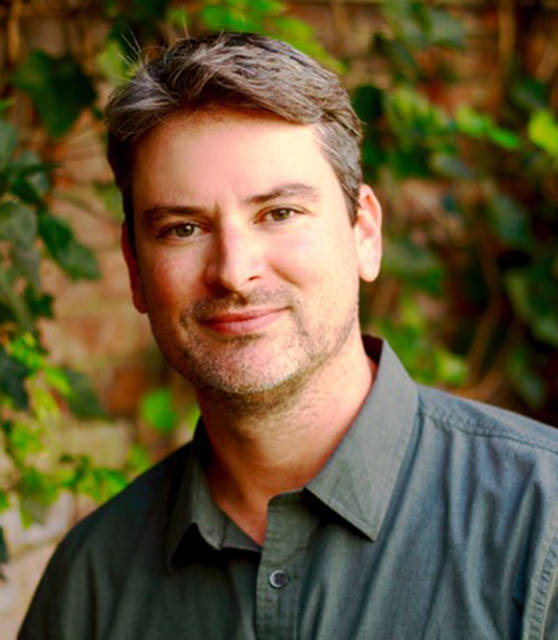WAIMEA — Writer and producer Trace Sheehan will take a grueling 10-hour flight from New York City to the Big Island next week for a special occasion: a free showing of his new movie, “Food Evolution,” at Kahilu Theatre. ADVERTISING
WAIMEA — Writer and producer Trace Sheehan will take a grueling 10-hour flight from New York City to the Big Island next week for a special occasion: a free showing of his new movie, “Food Evolution,” at Kahilu Theatre.
“I am excited to come back because the first footage we took was on the Big Island and Kauai in 2014,” he said. “We interviewed farmers, politicians and scientists to find out what was happening amid the GMOs controversies there.”
Beginning at 2 p.m. Aug. 12, the film aims to shed new light on the GMO debate prevalent in the food, farming and biotechnology industries, followed by a panel discussion and Q&A. Narrated by notable astrophysicist Neil deGrasse Tyson, the documentary premiered in late June.
“I reached out to Neil’s team and shared a rough cut of the film with them and he graciously said he’d narrate it,” Sheehan said. “He felt this was an important scientific debate that could use resetting.”
The producers’ goal is to answer how — amid the conflict and confusion around food — people can make the best decisions on how to feed themselves.
The idea to bring the movie to Waimea originated with resident Terri Impson-Richards.
“Becoming a mom definitely changed the narrative for me. I questioned more,” she said. “In my discussions with other parents and community members, while we may have differing opinions, I find that focusing on the commonalities such as a safe, affordable abundant supply of food without excessive chemicals — natural or synthetic — is our common goal. ‘Food Evolution’ focuses on the erosion of our trust in science, and is based on reason instead of fear. My hope is that it will create even more positive conversations around our commonalities and foster a more self-reliant Hawaii.”
Co-produced and directed by Academy Award nominee Scott Hamilton Kennedy, the film takes a stance based on research, facts and evidence surrounding GMOs. Representatives from both sides of the debate are interviewed, including Monsanto and Whole Foods. Former Councilwoman Margaret Wille and Dennis Gonzales, a Hawaii Island scientist who developed the virus-resistant Rainbow papaya in the 1990s, are also interviewed in the movie.
Hawaii was the first of many trips the production team took across the country and around the world. They also visited Missouri, California, Iowa, Washington, D.C. and New York, among other mainland locations, to interview activists and farmers there. Africa was another key destination.
“Most importantly, we got outside the U.S. and spent a week in Uganda, Kenya and South Africa,” Sheehan said. “We investigated banana wilt disease that had killed half of the bananas in Uganda — the most important crop in their country. (In the film) we told that story through the scientists who were developing GMO bananas there, that are still illegal, as well as farmers struggling with their diseased bananas.”
The film also features Dr. Emma Naluyima, a farmer there who took a journey to learn what a GMO is and if the specific one being tested in Uganda could be a solution for fellow farmers.
“There has been no research as of yet that shows GMOs to be harmful,” Sheehan said. “We did a lot of research into this and every major independent scientific institution or organization that has issued statements after reviewing the thousands of studies. The breeding technique used in Uganda is as safe as others and has shown no consequences on human health.”
Sheehan and Kennedy first became interested in the controversial topic after meeting with representatives from the Institute of Food Technologists (IFT), a Chicago-based international, non-profit scientific society of professionals engaged in food science, food technology and related areas in academia, government and industry.
“Scott and I had worked together in the past and were approached by IFT to produce a film based on scientific proof. They felt other documentaries weren’t sound and were tired of getting a bad name,” Sheehan said. “The question was how we could feed a growing population sustainably, and the GMO story was just one part of that. We quickly realized global hunger and sustainability are two big topics impossible to fit into one film, so we focused more on the GMO story. Our overall goal was how we, as a society, can make this important decision.”
The producers sought facts from a number of sources.
“We Skyped with at least 100 people and interviewed around 50 from all sides of the aisle,” Sheehan said.
Their overall goal in writing and producing the film is to inform the public.
“Food conversations had been muddied and overtaken by marketing. We wanted to see what the good, the bad and the ugly is towards GMOs,” Sheehan said. “I’m pro-science because every major scientific institution out there and all peer reviewed data tell us that, as a process, genetic engineering is as safe as any other seed breeding technique available.”
“A lot of times when people talk about GMOs they think they’re one product that has to do with pesticides and don’t know what it is,” he continued. “One of our goals is to show that it is simply a process to breed better seeds. Each product of genetic engineering should be evaluated on a case-by case basis. What our film tries to do is get beyond Monsanto and their corn to show people there’s a whole other wave of GMOs being developed by the public sector for humanitarian needs. In some countries, good GMOs are being held up while people are starving.”
Sheehan said the film’s purpose is to get people familiar with what a GMO is, and the scientific process — especially related to safety and sustainability.
“We hope to reach as wide an audience as possible,” he said. “We made the movie for average consumers who have heard of GMOs and think they’re bad because of the labels in grocery stores. We shed some light on the real science behind it in the documentary, not what you would see online. At the end of the day, we all want the same thing: safe, sustainable, nutritious food for everyone. I think genetic engineering is a tool that can help accomplish this. I want people to think twice.”
Kahilu Theater’s doors will open at 1 p.m. for the 2 p.m. showing. No RSVP is required.

